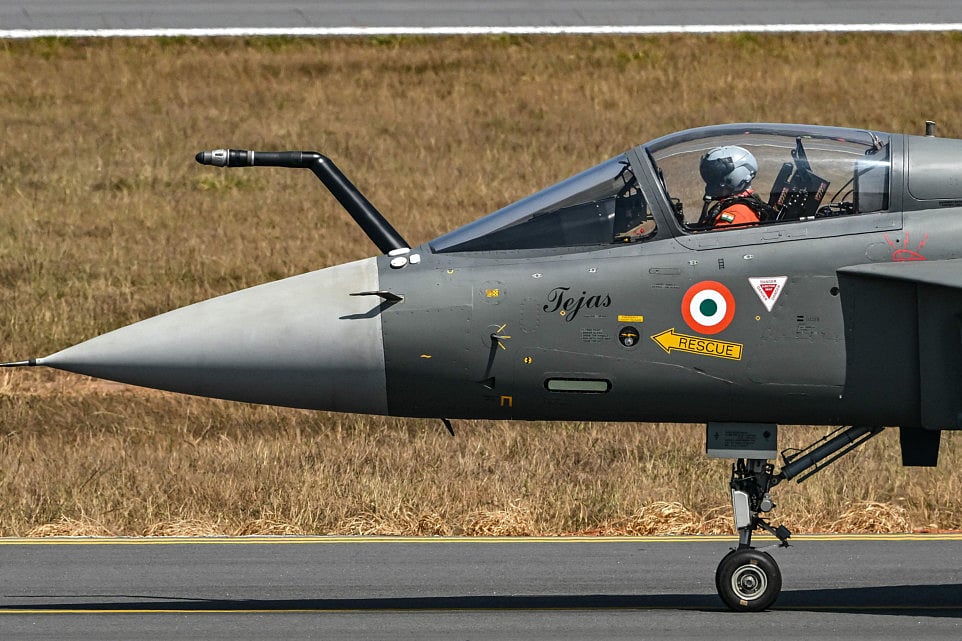India signs $7 billion deal for 97 domestically made fighter jets
Tejas, meaning ‘brilliance’ in Hindi, entered IAF in 2016; new order is for Mk-1A jets

NEW DELHI: India on Thursday signed a $7 billion order for 97 domestically designed and built Tejas fighter jets as its air force retires its outgoing Russian MiG-21 jets after decades of use.
The first Tejas jets - meaning “brilliance” in Hindi - were commissioned into the airforce in 2016, with the latest commission for the fourth-generation version of the fighter, Mk-1A.
India, one of the world’s largest arms importers, has made the modernisation of its forces a top priority, and made repeated pushes to boost local arms production.
India’s Ministry of Defence said it had “signed a contract with Hindustan Aeronautics Limited (HAL) for procurement of 97 Light Combat Aircraft (LCA) Mk1A, including 68 fighters and 29 twin seaters”.
HAL is a government defence manufacturer.
“The delivery of these aircraft would commence during 2027-28 and be completed over a period of six years,” the defence ministry added.
New Delhi is eyeing threats from multiple nations. India fought a a four-day conflict with Pakistan in May, their worst clash since 1999.
The Tejas jet ordered is the “most advanced variant of the indigenously designed and manufactured fighter aircraft”, the defence ministry added, saying it will be “a potent platform” for the air force.
India on Friday is to hold a flypast ceremony in a major air force base in Chandigarh, the final flight of their Soviet-era MiG-21s, in use since the 1960s.
India also signed in April a multi-billion-dollar deal to purchase 26 Rafale fighter jets from France’s Dassault Aviation.
They will join 36 Rafale fighters already acquired.
In August, Defence Minister Rajnath Singh said India was working with a French company to develop and manufacture fighter jet engines in the country.
This decade India has opened an expansive helicopter factory, launched its first domestically made aircraft carrier, warships and submarines, and conducted a successful long-range hypersonic missile test.
India’s latest test was of an Agni-Prime missile with a 2,000km range on Wednesday - this time fitted onto a special railway-based system.
BOX
-- IANS
Sign up for the Daily Briefing
Get the latest news and updates straight to your inbox
Network Links
GN StoreDownload our app
© Al Nisr Publishing LLC 2026. All rights reserved.